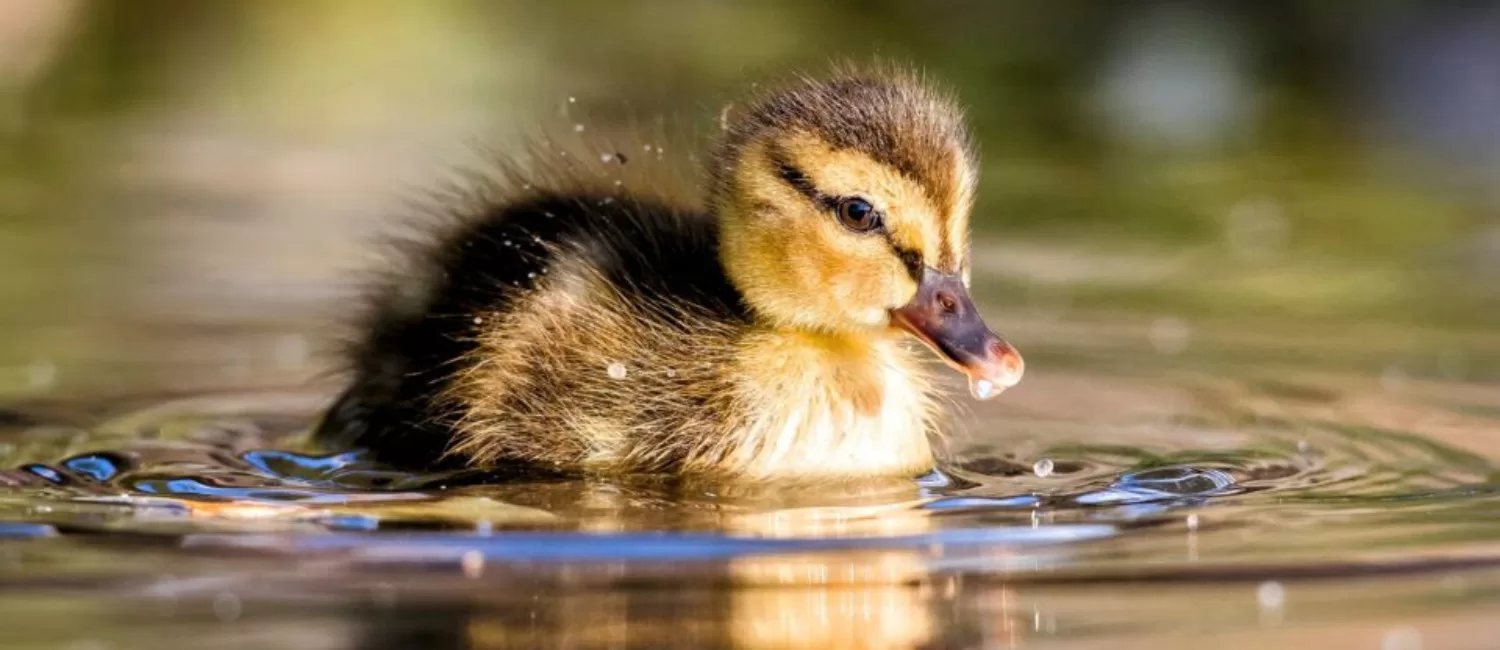Under the bridge, it is quiet. There are cars and concrete above that honk and scream, but under the bridge every drop of water that collects between the cracks can be heard as it falls down into the slow-moving river.
On special days, she feels a sense of stillness there. Everyone else has forgotten the bridge, and there are no school fights, gangs or graffiti, or pathetic displays of violence. Someone before her has painted over the crude vandalism from the years before and replaced it with blue and green murals, depicting trees, rivers, and nature as one spin cycle of peace. On these days, she can sit and watch the ducklings that follow their mothers down the stream. There’s a bond between the mother duck and her ducklings that she envies, a bond that is tight and never loosened.
On certain special days, she picks flowers from her own mother’s modest garden and wraps them together in a metal twine. She sits beneath the bridge, rubbing the stems gently between her index finger and her thumb, hoping to feel something; she hopes that her mother’s flowers beneath the bridge will invoke some nostalgic and comforting memory. But she has no memories beneath this bridge.
She has memories above it.
On certain special days, once she realises there is nothing for her beneath the bridge, she climbs up the grassy mound of earth to the top railing that looks down onto the river. From her pocket, she pulls out another piece of metal twine, and everything is quiet. She ties her flowers to the railing. She steps up onto the pedestrian footpath. And the silence is broken. Cars once again grumble past, honking at whoever is too slow to make it through the traffic lights. A stranger bumps into her as they walk along the path, yet continues on as if they seamlessly walked through air. They run to meet another stranger and laugh loud, obnoxious laughs. Everything is noisy and busy and bustling, as if nothing ever happened.
“Stop!” she wants to yell, “Don’t you remember what happened here?”
Her urge to scream is potent and vile, yet her lips stay sealed shut, letting the empty sound space be filled with the wailing cry of an ambulance – just like the one she remembered.
The ambulance pulls the final switch in her head.
The world flashes
from dark,
to light,
to dark again.
The traffic lights all blur into one in the oppressive night, car headlights and street lamps trying to make the road visible, or at least more visible than if it were just humans and the sky.
Her heart beats faster.
Her breath gets shorter.
There’s a car in front of her.
It’s smashed into pieces.
Someone is inside.
The ambulance is wailing again, and paramedics are deployed from it like military soldiers on their way to an intense battle.
She’s in a car now, parked hastily on the side of the road. Her mother, in the driver’s seat next to her, is as panicked as she is, abandoning her usual straight-lane parking pride. It isn’t important now to be perfectly aligned with the curb. Her mother’s nimble fingers curl around the door handle at an excruciatingly slow speed. Like a little duckling, she follows her mother down the footpath to reach what is left of the driver’s side of the car. She can’t hear anything over the shouting and honking and ambulance sirens, but she sees her mother’s lips move and morph into the words “my love”. She knows who’s in the car now. Her mother is too focused on the car to notice her world shattering behind her. Now, the girl is led by herself and herself alone.
The world flashes
from light,
to dark,
to light again.
There’s no trace of the ambulance, not even a fading siren as it drives away. She can’t see it, either, despite the broad daylight. She wipes her cheek to find a solemn tear trailing down to her chin, followed by another, and another, and another until her face is melting in grief. She crouches down beside her flowers, and her anger turns into pain. Once again, on a certain special day, she becomes some sodden teenage girl, drenched in tears above a bridge on the side of the road.
Through her tears, she looks to her left to see ducks swimming along the stream. There’s a male adult, a female adult, and a little duckling trailing behind. The male swims faster, faster, and faster until it uses its redundant wings to glide through the air along the open stream, away from the female and its duckling. It’s gone. The female lets out a distressed quack and tries to fly with the male, swimming faster, faster, and faster until it almost flies away, but giving up to wallow in its own pity. The little duckling is still far behind, trying to catch up to its grieving mother. But it’s only a duckling, left all alone at the end of the stream, not swimming fast enough through its sadness to catch up to the mother that keeps trying to fly away.
“Aneira.”
For the first time in what feels like centuries, Aneira hears her name. She looks up from her pathetic position to see her mother looking down at her, a second bunch of flowers in hand. The other reaches out towards Aneira, helping her out of her self-dug pit.
“Come on, darling,” her mother whispers, leading her down to beneath the bridge. Aneira closes her shaking hands around her mother’s, and together they watch the river flow.
Under the bridge, it is quiet, and their shallow breaths that coexist within each other can be heard and reverberated around the concrete walls. The mother duck swims back to its duckling, sheltering its baby beneath its wing. Aneira leans into the crook in her mother’s neck, and her mother drapes a gentle wing around her shoulder.
Cerys Gibby – Year 11


